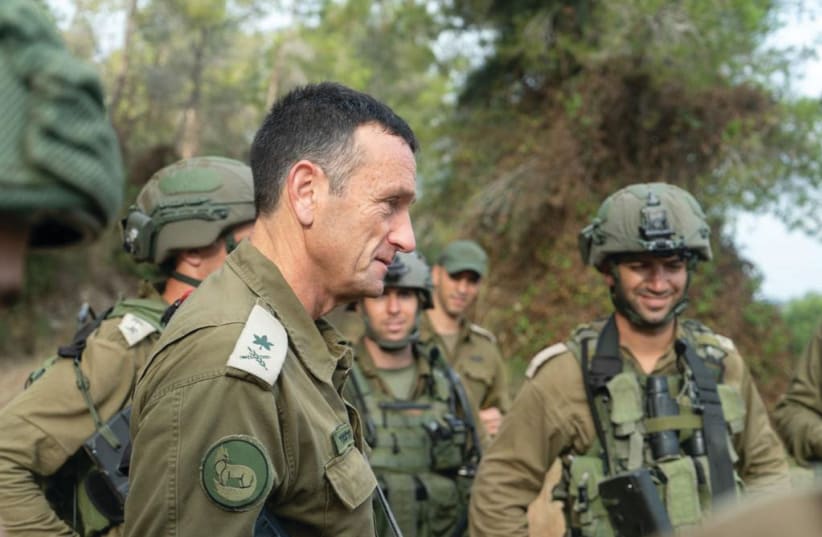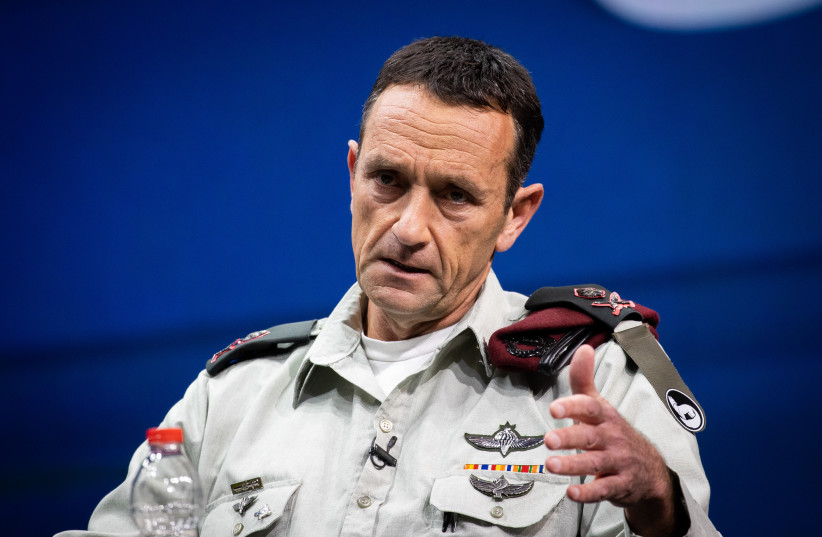Much of the country is up in arms about Otzma Yehudit chairman Itamar Ben-Gvir’s impending takeover of the police.
The police debate has major impact on the future of the state in terms of public safety, tensions with the Palestinians and the question as to what extent public officials are held to account in following public corruption laws.
But there is an even larger question: Is a political takeover of the IDF next?
This question is not limited to the recent debate over an IDF soldier who illegally beat a left-wing activist in Hebron. That kind of event is just a small opportunity for the different sides of the debate to voice their broader views on trying to shape the IDF.
The real game is whether, at the highest levels, the IDF remains a professional organization where top military echelons effectively have veto power over certain decisions and policies. Veto does not extend to broader policy goals – those have always been shaped by the political echelon.
But it does mean that, currently, the political echelon is forced to wrestle with the facts as they are, and not as they might be politically convenient for them. It also means that if politicians decide on an objectively poor populist policy, they know their shallowness will be exposed and judged. This process in and of itself can restrain – or block – some of the worst ideas that may otherwise be entertained for narrow political reasons.
Religious Zionist Party chairman Bezalel Smotrich, for a couple of weeks, was demanding to be appointed defense minister in order to exercise a certain amount of control over the IDF.
Former prime minister Naftali Bennett and Finance Minister Avigdor Liberman, who now have morphed into centrists, used to issue a constant drum beat of attacks on the IDF as being too weak against Gaza, Iran and pretty much everyone.
Over the years, quite a few politicians on the right – though notably not Benjamin Netanyahu – have called for re-conquering the Gaza Strip.
Consistently, IDF brass said re-conquering Gaza could be accomplished, but would be a disaster and would lead to significant, heavy and unnecessary loss of life on both sides, during the conflict and after Israel would “win.” It would face an extended and potentially unending guerrilla war, which would make the occasional Gaza rocket fire that almost never kills anyone seem inconsequential in comparison.
Another example is open-fire rules.
Although Israel has an aggressive interpretation of international law in this area, it has stuck to principles which at least the majority of its own legal community feels are defensible.
During the 2018 Gaza border conflict, hundreds of Palestinians were killed and a much larger number were wounded by IDF fire.
This was a globally controversial policy because of the number of deaths and injuries. The IDF mostly weathered the storm because the vast majority of its soldiers followed the military’s open fire rules, which included warnings, warning shots and firing below the knees – as opposed to shooting to kill.
Quite a few politicians called for simply opening fire at will for what they championed as a quicker end to the clashes.
WHEN HAMAS USES A MOSQUE or a hospital as a shield, the IDF will generally hold its fire, or try a variety of ways to remove Hamas from such sites before firing.
There have been instances where the IDF did strike a hospital and civilians were killed, but usually it has been from a misfire or some other mistake. It certainly was not part of a policy to just “bomb away” without warning, regardless of politicians’ cries.
And then there is a deeper level of politicization where the political echelon could simply want to make sure that whoever runs the IDF carries out whatever their wishes are, regardless of policy.
So, it is not that the IDF does not get influenced by politics. It does from time to time, and the influence is likely to increase over the next few years. A radical politicizing change to the military body is more complex though.
Smotrich was not given the Defense Ministry; Bennett and Liberman had to moderate when they gained the ministry. This is because Netanyahu takes war and peace decisions more seriously than anyone else. He was pretty silent during the recent Hebron incident. He waffled in his defense of the IDF the last time anything major happened in Hebron, a soldier shooting dead a disarmed and wounded terrorist, in 2016. But he held back populists from invading Gaza in three major rounds of war.
In contrast, Netanyahu is much less concerned with the police. He may use his victory in gaining greater control of the police to pressure the IDF in some new ways, but there are still certain lines that he will probably not cross.
Additionally, the defense minister in waiting, Yoav Gallant, is a career IDF man, finishing as southern commander, just short of IDF chief.
Doubtless he may have some scores to settle and some postponed dreams to realize now that he will be boss over the IDF chief, the job he once coveted. Gallant is also on the more aggressive end of ex-generals in his views of balancing using force and restraint.
But fundamentally, Gallant is a part of the system. He will care about the respect of his former comrades in uniform. It is unlikely that he will want to be seen as a politician interfering with professionals.
There is also the awkward fact that the incoming IDF chief, Hertzi Halevi, was not Netanyahu’s choice. Reportedly, he would have picked his former military secretary, Eyal Zamir, who came in a close second in outgoing Defense Minister Benny Gantz’s contest.
There has been speculation that Netanyahu might replace Halevi since he was approved during the election season. But Halevi is a celebrated officer who happens to be religious and removing him without any sort of trigger would likely induce a broad rebuke from the IDF command.
Even former IDF chief Dan Halutz was not actually fired after aspects of the Second Lebanon War were declared a debacle, but voluntarily resigned.
Another thing that differentiates the IDF from the police is that the IDF, especially at the top, is a more cohesive and stable unit than the police.
Weighing up all these factors, a revolution regarding the IDF cannot be ruled out. But it is less likely than one in the police both because of the leaders involved, the stakes for the nation and the fundamentally different cultures and place of the institutions within the State of Israel.

